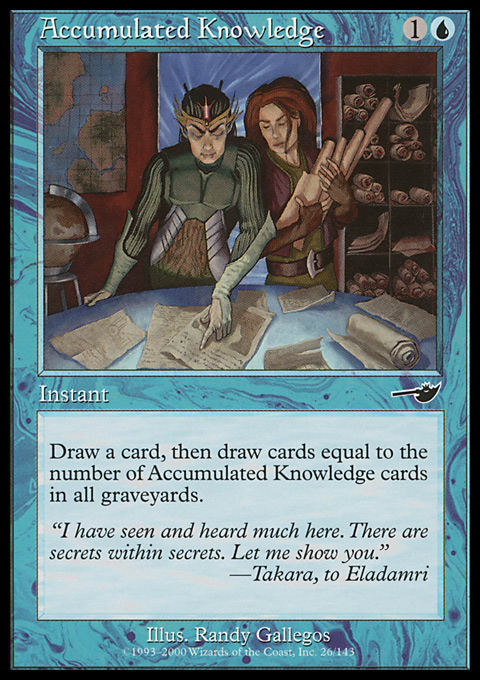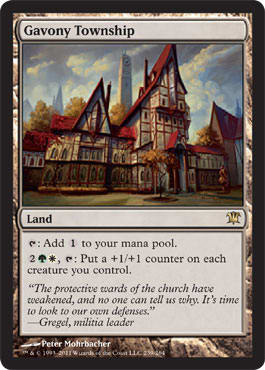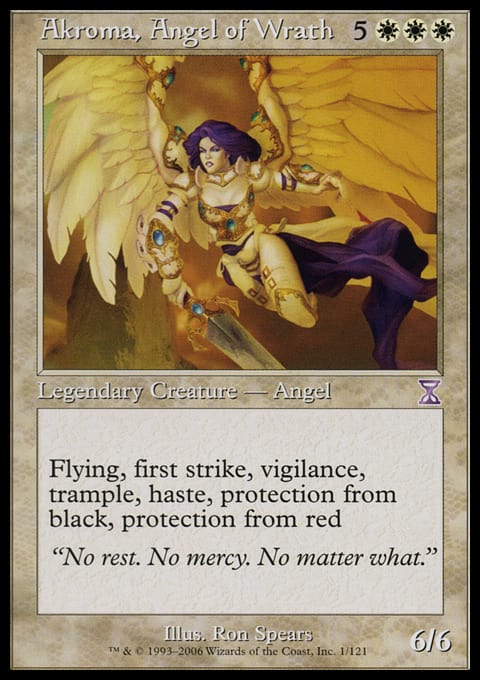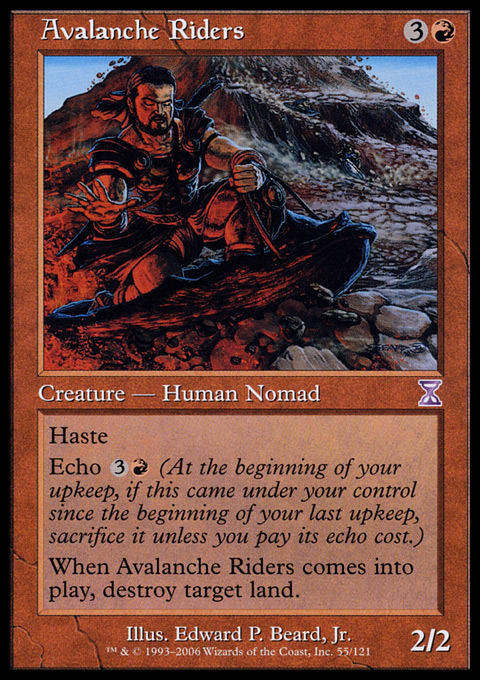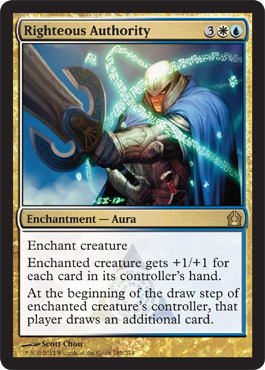Preface
When I write about strategy, deck design, or gameplay, I bring to the table the power of being an authority on the subject I’m writing about. The fact that I’m in the Pro Tour Hall of Fame and the things I accomplished to make it there automatically give my take on these things legitimacy. In spite of this, readers don’t (and shouldn’t) assume that I’m always correct on these topics, whatever my past accomplishments may be.
If I’m writing about a deck or a drafting strategy, there are many questions I can answer to potentially make my case stronger. Have I playtested it? How much? Against what? Have I played it in tournaments? Which ones? How did I do? Even if my answers to all of these questions indicate that the idea is a world-beater, there will always be readers who want to know if it could be even better.
A critical reader doesn’t accept things at face value just because the writer says they are so. The critical reader tests what the author says against his or her own sense of reality and his or her own experience to see whether it makes sense. If the author is a recognized expert, the reader will be more open to the possibility he or she can learn something new that’s goes beyond the scope of his or her own personal experience. Perhaps an idea I present doesn’t sound great to you, but you’ll give me the benefit of the doubt and try it out to see for yourself, due to my expertise on the subject.
Regular readers of this column know that some of the things I write about don’t fall directly under the scope of my recognized expertise, however. I have things I want to share with the Magic community besides just strategy and decklists. Since I don’t have a relevant degree or another recognized way to claim to be an expert on these things, I can only ask you to test these ideas much like any others I present to you. Do my ideas ring true to you? Do they make sense? If they do, give them some thought; if they don’t, add a comment below telling me why they don’t. Thanks for reading.
Newly minted Hall of Famer Patrick Chapin recently had a fantastic article titled “Words Mean Things,” in which he discusses the importance of being a force of positivity and the dangers of casually using offensive language.
I couldn’t agree more. Words such as rape, faggot, and any sort of hateful slur have no place in Magic lingo or for casual use in the Magic community. How we talk to others and how we treat others has a direct effect on the wellbeing of our community. Until we each take responsibility as individuals for the greater good of our community, however, these sorts of problems won’t go away.
Since you’re reading this, you’re a part of the Magic community. It’s not something you can choose to opt out of either. You’re already past that point; you became a member when you decided to become a Magic player. If you just wanted to play a game without being part of a community, you could play any number of single-player apps or console games. You chose to become a Magic player in part because at least some part of you either likes interacting with actual people when you’re gaming or at least enjoys the challenge of facing off against a real opponent. There are benefits and privileges to being a member of a community, but there are also responsibilities.
For the purposes of this discussion, I’m going to assume you enjoy playing Magic and being part of the Magic community. As a result, it benefits you for the game to stay economically successful and popular. To strive toward this goal, the more people who play, the more people who contribute to the community, and the more people who enjoy themselves while doing so, the better. With this as a common goal, we all have a responsibility to be caretakers of the community and what’s best for the game.
One way for the game and our community to stay strong and healthy is to attract and maintain a diverse player base. On the surface, the Magic community has little diversity. Glance around most Magic tournaments, and you will usually see a room filled mostly with young, straight, white, middle-class, male gamer geeks. It’s not quite that simple of course. First of all, there is a growing population of female Magic players. Enough that:
- Multiple women are having noteworthy finishes in premier events.
- They’re organizing, whether in Facebook groups or secret societies with superpowers.
- Writing articles about women in Magic is a frequent thing now.
While some people opine about the importance of bringing in more women to play Magic, I’m mainly concerned about the ones who are currently playing. It’d be great if we could all just be pleasant and courteous enough that female players were able to feel accepted and like a normal part of the community and not feel like freaks or objects for the rest of us Magic players to fawn over or worse.
Women aren’t the only people in our community who sometimes feel mistreated or misunderstood, of course. The thing that draws people to this community is a love of the game—there is nothing about that love that guarantees a good sense of decorum or any particular social skill. A person lacking advanced social skill can not only inadvertently hurt others, but too often, that person also is hurt, often by people who should know better and do better.
There are quite a few Magic players with mild social disorders like Asperger’s syndrome. I remember facing off against my friend Allen (name changed) in the finals of a local tournament, and I aimed the sort of teasing joke at him that I might aim at any of my non-socially-challenged Magic friends in a similar situation. Much to my surprise, he looked shocked and said, “I’m so disappointed Darwin—until now, you were the one person who never made fun of me.” I’m not sure if this story means I should have been treating him more like my other friends all along or if I just shouldn’t tease people, but at the very least, it made me even more reflective about how I treat other people, which is never a bad thing. I’ve come to learn that when in doubt, treat each individual with the same respect (meaning not less or more) that I would treat anyone else.
I’m not going to start preaching and say that we need to mount some sort of campaign to increase the diversity of our community. If a wide variety of people want to play Magic, that’s fantastic. If not, that’s okay, too. However, I do believe all Magic players have a responsibility to be inclusive and welcoming to Magic players of all types.
As the game of Magic matures, one part of the community is definitely growing more diverse: the age spectrum. Magic may primarily attract young people as new players, but once it gets ahold of you, it rarely lets go, even as you leave the most common entry-point age way behind you. I should know—I started playing in 1994, when I was twenty-two, now I’m old, like your parents who are trying to discourage you from playing that devil game—that kind of old . . . Yet, I don’t see myself giving up Magic anytime soon.
The Magic community forms such a common bond that it’s easy to be age-blind toward others in the community. Many of my close friends in the Magic community are much, much younger than I am. Heck, I just got out of a romantic relationship with someone who is only just about to start drinking legally (insert gasps of shock and horror here). Yet, it’s sometimes a good idea to realize just how different people of different ages can be.
One of the things about being an elder member of this community is that I’ve been able to see the community and its members evolve over time. There are plenty of Magic players whom I used to write off as immature jerks who have, over time, become mature and pleasant gentlemen/ladies whom I would be proud to call my friends. This recognition is made easier by self-reflection. I know that I’ve changed. There are plenty of people who only know me from specific slivers of my life and have formed understandably narrow impressions of who I am/was, and they’re not always flattering ones: obnoxious blowhard, know-it-all, snobbish loner, callous jerk, thoughtless, pretentious, arrogant, vain, rules lawyer . . . you get the idea. I prefer to think I am none of these things, but if you judge anyone purely on specific, narrow snapshots from his or her life, any number of unflattering labels might be appropriate.
If I can evolve and change (I hope for the better), I need to recognize that so can others. People obviously need to be judged by their actions more than their potential to improve, but we should try to not to define people too much by their past if they make a consistent effort at reforming themselves for the better.
If you’re among the older portion of the Magic community as I am, the next time you’re horrified by the immature antics of some Magic players, stop yourself and ask yourself how old they are. Most likely, they’re young enough that while it’s fair for you to be disappointed and perhaps disapproving, you probably shouldn’t be quite so surprised. If possible, try to remember what you were like at that age. Now, realize that it’s your responsibility to set a good example and help guide their behavior—while somehow not just coming across as some sort of uncool parental figure (good luck with that!)
If you’re part of the younger portion of the Magic community, realize that the best way for you to be accepted by the rest of the community, young and old, is to comport yourself as a responsible adult, and focus on playing the game and having fun without hurting others.
Magic spawns a very competitive environment that leads to emotions running hot and high. In the long run, though, the most popular players are the ones who are nice to people and get along with everyone—not just the “cool” people. The more people we’re nice to, the more people we can play with, trade with, and work with. In addition, if you can keep your composure and control your emotions, it will help you play better, too.
As I established earlier, we’re part of a community. It’s our responsibility to be a positive part of that community. If you catch someone cheating, stealing, or frequently being cruel to people, ban that person from your play group, your store, or wherever. While I believe in second chances, there are enough stores and play groups that those people can have their second chances somewhere else now that they’ve learned their lessons—thanks to you. People have to have a reason to change, and we’ll be doing them a favor by showing them what will happen to them until they make a change for the better. In the process, we’ll also be making our local Magic communities a more inviting one for new players and more fun for the existing ones.
Perhaps the most important responsibility we have to the community is to do our part and lead by example. Be encouraging to new and/or struggling players. Be sportsmanlike whether you win or lose. Be pleasant and courteous to everyone—you might be surprised how much nicer people will be back to you. Trust me, I know it can be hard, but give it a try: You might be surprised how much better you fit into the community once you take responsibility for your part in it.













